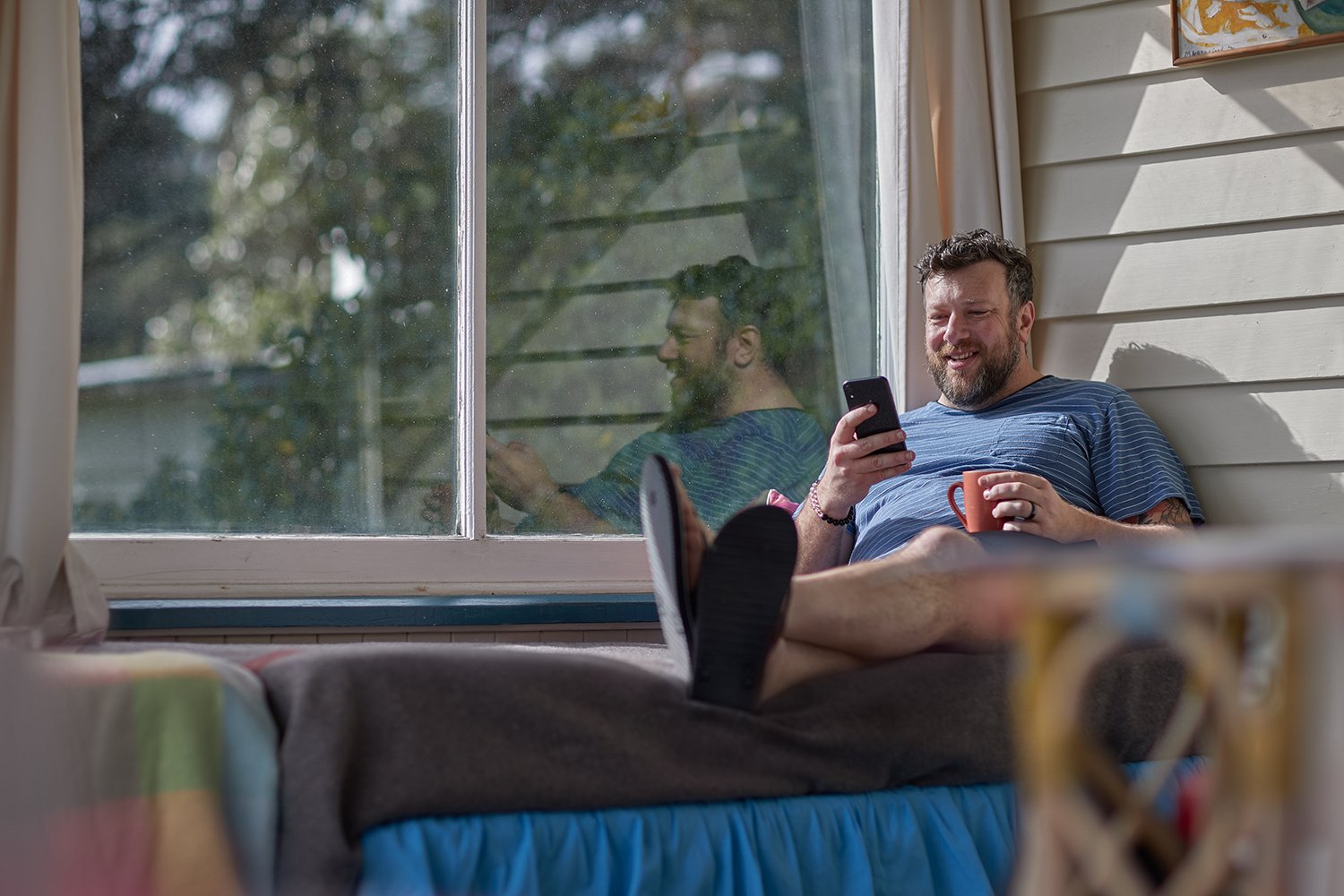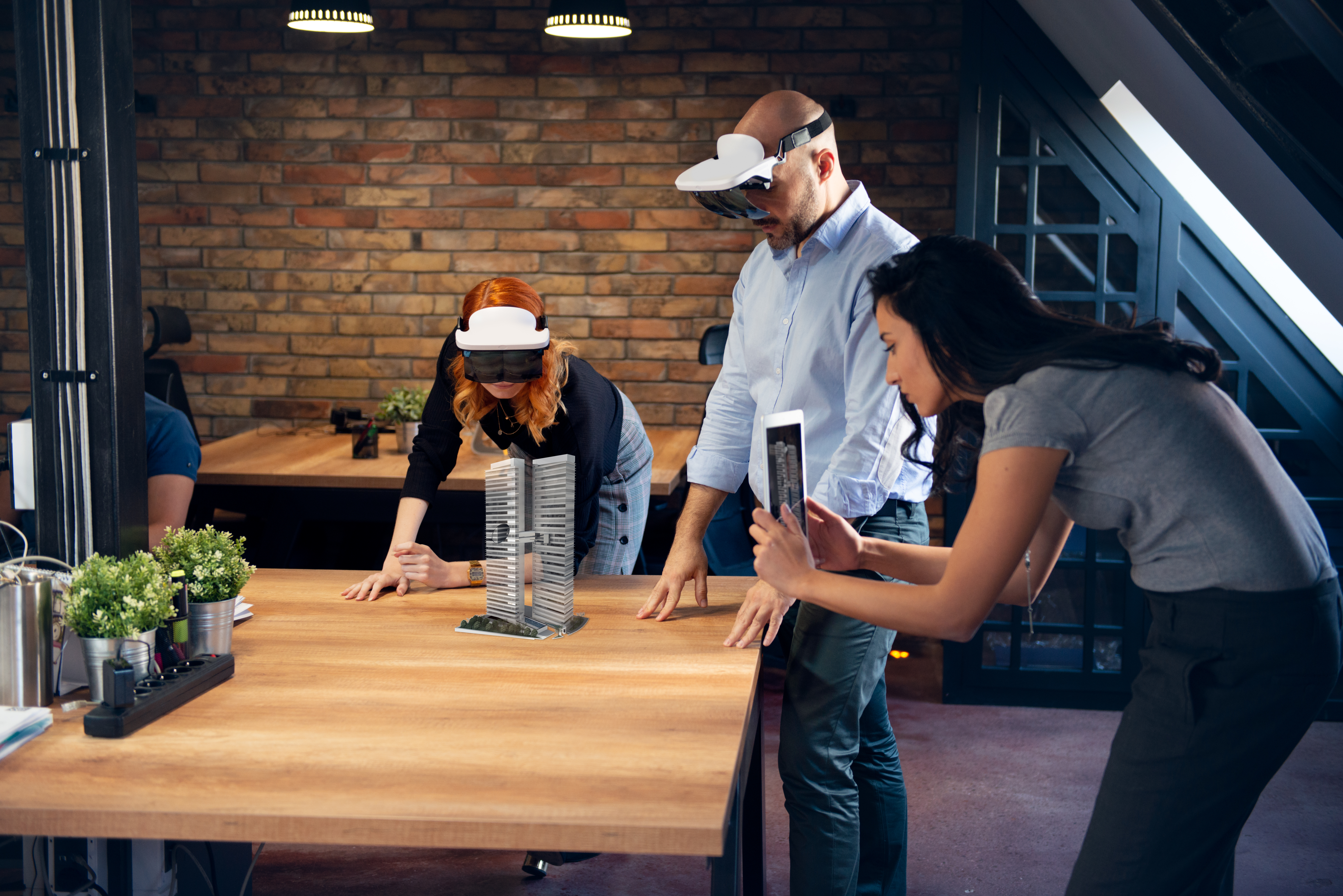Please configure
Spark showcases 5G-powered robotics, gaming and eye care prototypes
Six months after being named as winners of the Spark 5G Starter Fund, four innovative Kiwi businesses are launching their game-changing technology prototypes, offering a first look at the positive outcomes 5G can bring to communities across New Zealand.
Robotics company Rocos, VR gaming creator Beyond and health businesses Objective Acuity and oDocs Eye Care were the successful recipients of a share of $625,000 of funding and technology support from Spark in October 2020.
Since then, each business has been tirelessly developing, testing and refining its 5G solution tapping into expert 5G technical support and business mentoring by Spark and its partners.
This involved an exclusive opportunity to test and co-create each 5G-powered solution inside Spark’s new Innovation Studio that launched to the public in March 2021.
Entry criteria for Spark’s initiative required the technology concepts to demonstrate how 5G could bring positive outcomes to communities across New Zealand.
Spark’s Technology Director, Mark Beder says that the Spark 5G Starter Fund uncovered some of New Zealand’s most innovative 5G pioneers.
“Each winner is set to make history by being amongst the first in the country to embrace the powerful potential of our 5G network to revolutionise their respective industries. From democratising eyecare, developing a world-first immersive gaming experiences and taking the manufacturing industry to new, robotic heights, Spark is proud to support these four Kiwi businesses to deliver transformative solutions for New Zealand and New Zealanders.”
oDocs is on a mission to make eyecare globally accessible, equitable and affordable. Using the power of 5G, oDocs has developed a secure and encrypted live consultation portal that serves to connect healthcare professionals to patients in remote regions. 5G technology makes it possible for clinicians, expert and non-expert, to conduct an instantaneous live-stream consultation using a 5G enabled device attached to a handheld ophthalmoscope. The portal will empower and enable all clinicians for appropriate triaging and referrals to ophthalmologists, reducing waiting lists for screening and follow-up, thus improving the management of the healthcare workforce.
Objective Acuity is breaking away from the traditional and often unreliable letter chart vision test by using 5G technology to develop a suite of software-based vision screening and acuity tests that are more accessible and accurate for detecting vision problems in younger children. Spark 5G enables Objective Acuity to further improve accuracy and make testing up to 7 times more efficient through a real-time result. It will soon use AI to optimise the test automatically as data is collected – helping Objective Acuity towards its ultimate goal of democratising vision screening.
Beyond, a Wellington-based virtual reality game studio, has developed a world-first for the e-sport market – the ability for multiple gamers to join free-roam, virtual reality game Oddball via their 5G mobile phone, opening the location-based VR gaming world to those without a VR headset. The application is made possible through 5G, which in the future will ensure no players experience any lag and enables both physical VR and mobile players to interact seamlessly and safely together. 5G enables Beyond to bring immersive VR to the masses like never before. High speed enables 4k streaming of our content on mobile phones and players will be able to join in on the fun in real-time.
Rocos is demonstrating the power of 5G by showcasing how remote teleoperation and robotic automation can be used to revolutionise industries. The mass connectivity and low latency that 5G will provide in the future, will make it possible to automate physical tasks at scale, improving the capability of autonomous missions undertaken by robots, such as scanning and monitoring a construction site or power grid, thereby reducing health and safety risks.
The 5G Starter Fund winners are showcasing their 5G technology solutions during a Media Demo Day on May 6. To find out more about the Spark 5G Starter Fund visit spark.co.nz/5g/home/starter-fund/
About the Rocos 5G solution
- Rocos has combined 5G and robotics to develop physical automation technology that will benefit numerous industries, such as construction and utilities.
- The transition from digital automation to physical automation, made possible through 5G technology, will automate tasks that currently rely on humans.
- It is anticipated that 5Gs mass connectivity and low-latency will help to make the Rocos robot operations platform a game changer for numerous industries in New Zealand through its ability to capture valuable data streaming from autonomous robots and feed this to remote engineers. Automating environments will remove the risk of human error, create new levels of efficiency as physical processes are automated, and improve the health and safety of teams.
- Through Spark’s 5G Starter Fund, Beyond has developed a ‘first of its kind’ mobile app that makes it possible to live stream a virtual reality game with multiple players in locations across the world and have the ability to join it via a 5G enabled phone.
- This is believed to be a world first, where location-based reality and virtual mobile users can combine when using a 5G device within 5G coverage.
- The app makes games more accessible to a larger market, enabling players to join games via their 5G device for cross platform play. It enables players to customise their characters, stream games and join the fun without a VR headset.
- 5G provides the throughput and reliability to safely integrate into private LAN servers from remote locations without presenting safety concerns for location-based experience users.
- At present, there is no software available that can accurately screen the eyesight of young children. Current testing methods rely on subjective feedback, which can lead to inaccurate test results and false positives being referred to eye professionals.
- Objective Acuity provides the first ever suite of objective and software-based vision tests, based on direct measurement of visual acuity, which provides a functional read-out of a person’s quality of vision.
- The current vision screening in New Zealand (and globally) has poor accuracy, resulting in a large number of false positives. In early clinical studies, the Objective Acuity test is substantially more accurate, reducing the false positives. Objective Acuity’s test does not require a verbal response from children and instead uses 4G and 5G-enabled technologies to reduce the number of false positives that are referred through the healthcare system.
- In addition to improvements in accuracy, Objective Acuity’s use of 5G technology combined with AI to process frames in real time can make the overall test time up to 7 times faster.
- The application of 5G has allowed Objective Acuity to shape the future architecture to implement artificial intelligence in their tests. There is potential for this technology to be integrated in local communities such as set ups in pharmacies, pre-schools, GP clinics, and non-eyecare health specialists.
- There are an estimated 180,000 individuals with visual impairment in New Zealand, which costs the economy $2.5 billion a year. It is also the second biggest clinical outpatient burden in the country.
- With large land population size and limited health care facilities available in the country, many New Zealanders, especially those in rural communities, must travel long distances to see an ophthalmologist.
- oDocs’ live consultation portal can provide remote eye consultations for one tenth of the cost of a traditional, in-person eye test, resulting in a fast, affordable and accessible eyecare solution that can be accessed by different community groups.
- The developed 5G technology will provide remote services to hospitals, solving up to 30% of acute ophthalmology issues in destinations that currently face capacity issues.
- Through AI technology and learning algorithms, the portal can identify which cases require urgent medical care. This will reduce unnecessary travel by people living in remote communities, as well as help to manage hospital capacity levels.

Elle Dorset
+64 21 238 9844 | Elle.Dorset@spark.co.nz
Please configure








